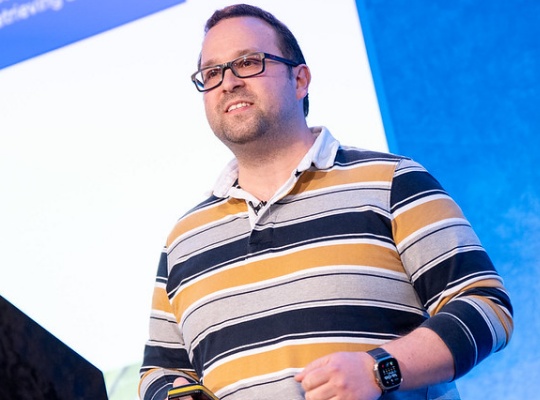Codetown
Codetown ::: a software developer's community
Has anyone gotten a Distribution Certificate for an iPhone app?
Tags:
Replies to This Discussion
-
Permalink Reply by Walt Sellers on November 17, 2009 at 3:47pm
-
I'm not sure why you can't see the button, but if you already have a distribution certificate in your account you can't get another.
If you created one for ad-hoc distribution, use that one for submitting to the App Store by creating a new distribution provisioning profile. -
-
Permalink Reply by Kevin Neelands on November 20, 2009 at 3:24pm
-
First it turned out the 'Add Certificate' button the docs referred to were not on that page, but if you select the "how to " tab it was at the bottom of that page. By that time I was confused enough I started from scratch, and what you pointed out - if you have one distribution certificate you can't get another - bunged me up for a while. So I decided to start from scratch a third time, starting with getting a development certificate, and somehow I got things so screwed up I can't even compile and install working versions on my iPhone. I've worked on the mac 3 times and each time it's just been incredibly frustrating.
-
Notes
Welcome to Codetown!
 Codetown is a social network. It's got blogs, forums, groups, personal pages and more! You might think of Codetown as a funky camper van with lots of compartments for your stuff and a great multimedia system, too! Best of all, Codetown has room for all of your friends.
Codetown is a social network. It's got blogs, forums, groups, personal pages and more! You might think of Codetown as a funky camper van with lots of compartments for your stuff and a great multimedia system, too! Best of all, Codetown has room for all of your friends.
Created by Michael Levin Dec 18, 2008 at 6:56pm. Last updated by Michael Levin May 4, 2018.
Looking for Jobs or Staff?
Check out the Codetown Jobs group.
InfoQ Reading List
Argo CD 3.3 Brings Safer GitOps Deletions and Smoother Day‑to‑Day Operations

The application deployment and lifecycle management tool Argo CD has reached a new milestone with the release of version 3.3, extending the capabilities of the popular GitOps continuous delivery tool while addressing several long-standing pain points for operators.
By Matt SaundersMySQL 9.6 Changes Foreign Key Constraints and Cascade Handling

MySQL is changing the way foreign key constraints and cascades are managed. Starting with MySQL 9.6, foreign key validation and cascade actions are handled by the SQL layer rather than the InnoDB storage engine. This will improve change tracking, replication accuracy, and data consistency, making MySQL more reliable for CDC pipelines, mixed-database environments, and analytics workloads.
By Renato LosioVercel Releases React Best Practices Skill with 40+ Performance Rules for AI Agents

Vercel has launched "react-best-practices," an open-source repository featuring 40+ performance optimization rules for React and Next.js apps. Tailored for AI coding agents yet valuable for developers, it categorizes rules based on impact, assisting in enhancing performance, bundle size, and architectural decisions.
By Daniel CurtisKubernetes Introduces Node Readiness Controller to Improve Pod Scheduling Reliability

The Kubernetes project recently announced a new core controller called the Node Readiness Controller, designed to enhance scheduling reliability and cluster health by making the API server’s view of node readiness more accurate.
By Craig RisiPresentation: Platforms for Secure API Connectivity With Architecture as Code

Jim Gough discusses the transition from accidental architect to API program leader, explaining how to manage the complexity of secure API connectivity. He shares the Common Architecture Language Model (CALM), a framework designed to bridge the developer-security gap. By leveraging architecture patterns, engineering leaders can move from six-month review cycles to two-hour automated deployments.
By Jim Gough
© 2026 Created by Michael Levin.
Powered by
![]()